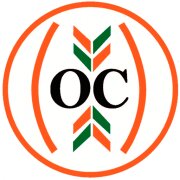Best Civil Rights Lawyers in Papua New Guinea
Share your needs with us, get contacted by law firms.
Free. Takes 2 min.
Or refine your search by selecting a city:
List of the best lawyers in Papua New Guinea
About Civil Rights Law in Papua New Guinea
Civil rights in Papua New Guinea (PNG) are founded on its Constitution, which guarantees fundamental rights and freedoms. These rights are extended to all citizens, safeguarding equality and non-discrimination. The National Goals and Directive Principles of the Constitution emphasize equal participation, equitable distribution of resources, and respect for the inherent dignity of each individual. Civil rights law in PNG aims to protect individuals against discrimination, promote equal opportunity, and ensure freedom of expression, association, and assembly.
Why You May Need a Lawyer
There are multiple scenarios where individuals might seek legal assistance regarding civil rights in Papua New Guinea:
- Discrimination: If you experience unjust treatment based on race, gender, disability, or any other protected characteristic.
- Workplace rights: Issues such as wrongful termination, unfair labor practices, or discrimination at work may necessitate legal assistance.
- Freedom of speech and assembly: If your rights to express opinions or participate in peaceful gatherings are threatened or infringed upon.
- Access to public services: When facing denial of rights to access essential services like education or healthcare.
- Police misconduct: Instances of excessive force or unlawful detention by law enforcement.
Local Laws Overview
Papua New Guinea's legal system, influenced by both common law and customary practices, includes several key statutes pertinent to civil rights:
- The Constitution: Serves as the supreme law, outlining fundamental rights and freedoms.
- Human Rights Acts: Protects personal liberties and safeguards against discrimination.
- Employment Acts: Address workplace equality and protections against discrimination.
- Family Protection Acts: Offers recourse for victims of domestic violence and supports gender equality.
Frequently Asked Questions
What civil rights are protected under PNG's Constitution?
The Constitution protects rights such as life, liberty, protection from inhumane treatment, freedom of expression, and equality before the law.
How can I report a violation of my civil rights?
Violations can be reported to the police, local courts, or relevant governmental bodies such as the Ombudsman Commission or the Human Rights Commission.
Is there protection against discrimination based on gender?
Yes, gender-based discrimination is prohibited, and laws like the Family Protection Act specifically address gender equality.
What steps can I take if I face workplace discrimination?
Document the incidents, report them to your employer or human resources, and seek legal advice as needed.
Are there specific rights for indigenous people in PNG?
Yes, the Constitution and various statutes recognize and protect the rights of indigenous communities, particularly in terms of cultural preservation and land rights.
How does the legal system in PNG address police misconduct?
Complaints regarding police conduct can be filed with the police internal investigation unit, or through the Ombudsman Commission for further action.
Can I participate in peaceful protests?
Yes, the right to assembly is protected, but you should comply with local laws regarding permits and safety measures.
What legal support is available for victims of domestic violence?
Victims have access to protection orders and support services under the Family Protection Act.
Is legal aid available in Papua New Guinea?
Legal aid services are available but may be limited, so contacting organizations like the Public Solicitors Office can be beneficial.
How can I ensure my civil rights are not violated?
Stay informed about your rights, seek legal advice when needed, and utilize governmental and non-governmental support services.
Additional Resources
For additional support and information on civil rights in Papua New Guinea, consider reaching out to the following:
- Public Solicitors Office: Offers legal assistance and representation for individuals unable to afford private lawyers.
- Ombudsman Commission: Investigates complaints regarding corruption and public services.
- Papua New Guinea Human Rights Commission: Provides guidance and support on human rights matters.
- Family and Sexual Violence Action Committee: Provides support for victims of domestic violence.
Next Steps
If you find yourself in need of legal assistance regarding civil rights in Papua New Guinea, consider the following steps:
- Identify the specific nature of your civil rights concern.
- Gather any evidence or documentation relevant to your situation.
- Contact a lawyer specializing in civil rights for advice and possible representation.
- Reach out to governmental or non-governmental organizations for additional support and information.
- Continuously educate yourself on your rights and seek community support.
Lawzana helps you find the best lawyers and law firms in Papua New Guinea through a curated and pre-screened list of qualified legal professionals. Our platform offers rankings and detailed profiles of attorneys and law firms, allowing you to compare based on practice areas, including Civil Rights, experience, and client feedback.
Each profile includes a description of the firm's areas of practice, client reviews, team members and partners, year of establishment, spoken languages, office locations, contact information, social media presence, and any published articles or resources. Most firms on our platform speak English and are experienced in both local and international legal matters.
Get a quote from top-rated law firms in Papua New Guinea — quickly, securely, and without unnecessary hassle.
Disclaimer:
The information provided on this page is for general informational purposes only and does not constitute legal advice. While we strive to ensure the accuracy and relevance of the content, legal information may change over time, and interpretations of the law can vary. You should always consult with a qualified legal professional for advice specific to your situation.
We disclaim all liability for actions taken or not taken based on the content of this page. If you believe any information is incorrect or outdated, please contact us, and we will review and update it where appropriate.
Browse civil rights law firms by city in Papua New Guinea
Refine your search by selecting a city.










